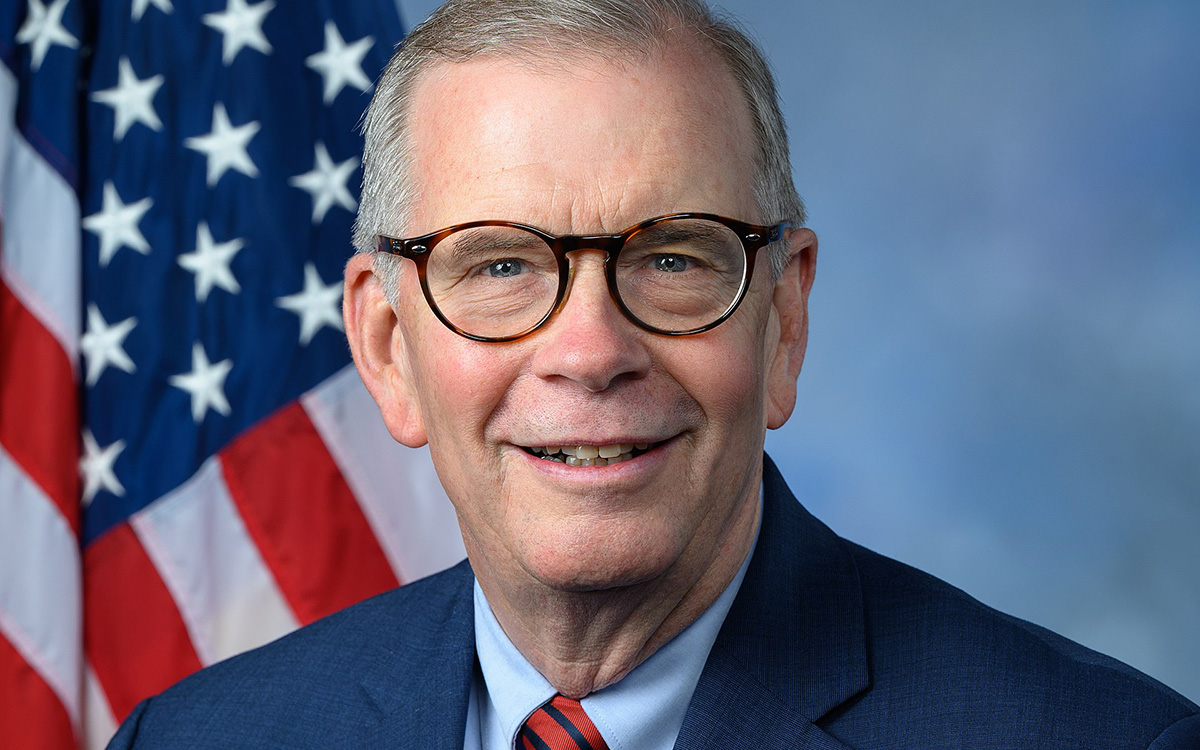Politics
Corporate allies increasingly challenged over LGBTQ support
State Farm, Disney punished for speaking out

After years of leveraging their familiar brand names to denounce anti-LGBTQ measures in state legislatures, large corporations are facing increasing challenges to their free speech amid newfound pressure from conservative forces, raising questions about whether they will continue to remain as vocal as they have in the recent past.
From retaliation against State Farm for pledging to donate LGBTQ-themed books to children’s schools, to Florida revoking Disney’s special districting status after speaking out against the “Don’t Say Gay” law recently signed by Gov. Ron DeSantis, businesses are encountering significant resistance after pledging support for the LGBTQ community — and the blowback is having an impact that may silence the relatively newfound ally for LGBTQ causes.
Nadine Smith, at the forefront of the fight as executive director of Equality Florida, said businesses “are receiving clear messages from the DeSantis bully pulpit not to interfere with the agenda of censorship and discrimination.”
“Speaking out on behalf of your employees’ children and the respect of your employees’ families is in keeping with the values of diversity and inclusion companies have touted for years to attract and retain top talent,” Smith added. “Failing to walk the walk because the governor and his fellow extremists have threatened you is the political choice.”
One recent case of a business reversing course was State Farm backing down after pledging to donate LGBTQ-themed books in coordination with GenderCool, a youth organization highlighting LGBTQ-themed voices, to schools and libraries. Among the titles of the books to be donated were “A Kids Book About Being Transgender,” “A Kids Book About Being Inclusive,” and “A Kids Book About Being Non-Binary,” which portrayed the experience of different gender identities. The anti-LGBTQ group Consumers’ Research launched a campaign consisting of online blasts, which were boosted by The Daily Wire and Breitbart, with the slogan “Like a Creepy Neighbor…State Farm is There.”
The campaign appeared to have the desired impact. On May 23, State Farm announced it would pull back, declaring “conversations about gender should happen at home with parents” as opposed from GenderCool it “will no longer support that program.” Although State Farm in a later statement insisted it would continue to support the LGBTQ community and inclusivity, the victory for conservative forces was evident.
Another high-profile example of a business speaking out on policy against LGBTQ people and facing blowback was Disney when it spoke out against the Florida “Don’t Say Gay” law, which prohibits discussion in schools on LGBTQ matters in grades K-3 . Although Disney initially was reluctant to speak out, it reversed course in response to public pressure and CEO Bob Chapek contacted DeSantis to denounce the measure days before he would sign it.
DeSantis, who’s widely considered a leading contender for the Republican presidential nomination in 2024, publicly denounced the company for embracing “woke” ideology. The Florida Legislature followed up by revoking Disney’s tax status, which had enabled it to operate its own security forces in Disney World in Orlando.
The conservative media also played a role. Skewering Disney for taking a stance against the “Don’t Say Gay” measure, The Daily Wire decried the media conglomerate for its all around approach to LGBTQ visibility, declaring a $100 million investment in the launch of a “DW Kids,” which aims to be a competitor to Disney in youth media. Conservatives also crowed when polling found Disney has suffered a loss in public approval; one poll from the conservative Trafalgar Group found 68 percent of respondents were less likely to do business with Disney as a result of the company “focusing on creating content to expose young children to sexual ideas.”
Disney ended up making neither side happy. The Human Rights Campaign announced it wouldn’t accept a donation of up to $500,000 pledged by Disney at the time it came out against the “Don’t Say Gay” law. Media reports also highlighted stories about LGBTQ employees and allies at Disney storming out in protest over the media company’s delayed action on the Florida measure.
Fabrice Houdart, managing director of the LGBTQ group Out Leadership, acknowledged the “Disney debacle hurt our community,” but said he thinks the overall impact of the incident was no indication of a decrease in strength among LGBTQ people.
“If Bob Chapek was testing the resolve and clout of our community and its allies to ensure corporations take a stance when our human rights are under attack, he got a very clear response,” Houdart said. “The community’s reaction, protests, and media coverage highlighted that the time for companies to play both sides on human rights is over. Corporate power is immense and we will continue to engage corporations to ensure they put their money and lobbying efforts where their mouth is.”
But the growing tension among business leaders is palpable. The Wall Street Journal, in an article titled “Disney’s clash with Florida has CEOs on alert” dated May 2, details the impact retaliation is having on businesses and whether or not they will take a stance on LGBTQ issues or other matters deemed socially divisive, revealing a new trepidation not seen in recent years.
“The fallout from the recent political spat between Disney and Florida Gov. Ron DeSantis has alarmed leaders across the corporate sphere, according to executives and their advisers, and heightened the challenges for chief executive officers navigating charged topics,” the Journal reported.
The current situation stands in stark contrast to years past when businesses were falling over themselves to denounce measures and policies against LGBTQ people. The most recent case was House Bill 2 in North Carolina, which barred citywide LGBTQ non-discrimination ordinances and transgender people from using restrooms on public property consistent with their gender identity. The business outcry and cancellations cost the state an estimated $39.7 million in revenue and is credited for being the reason Gov. Pat McCrory lost re-election in 2016.
The outcry over House Bill 2 echoed a similar situation. In Arizona, the business outcry in 2013 over religious freedom legislation seen to enable discrimination against LGBTQ people led conservative Gov. Jan Brewer to veto the measure. In 2015, Then-Indiana Gov. Mike Pence defied opposition to similar religious freedom legislation and signed the measure into law, but after outcry continued to escalate, he signed into a law a “fix” to the legislation that dramatically limited its discriminatory scope.
In each of these cases, businesses were seen as the key ally in pushing back against measures against LGBTQ people because their brands were well known, seen as neutral in outlook and influential with lawmakers counting on political donations to win re-election. As a result, corporate involvement may well have turned the tide in conservative states like Arizona, Indiana, and North Carolina.
Regional differences may account for the different outcomes as LGBTQ advocates in certain states continue to boast strong business support that continues to thwart legislation seen to enable discrimination.
Angela Hale, managing director of the LGBTQ group Texas Competes, made a distinction between Florida, where she said the environment is “toxic” after retaliation against Disney and may lead businesses to “think twice” on LGBTQ issues, and Texas, where she said the business community continues to support LGBTQ people, pointing out more than 1,500 businesses back her organization.
“What I’ve been watching is Ron DeSantis punish Disney, try to punish the Special Olympics, punish the baseball team in his state, for speaking out on issues that are important to those corporate values,” Hale said. “And that’s unfortunate that he is taking such tactics because businesses employ millions of people across the country and have employees in every state, and these employees care about the positions that the company they work at take.”
Asked whether she thinks the retaliation against companies like Disney would have an impact, Hale said it’s “too soon to tell,” but in the meantime businesses are continuing to speak out on a range of issues, including gun control after the recent shooting at a grade school in Uvalde, Texas.
“When we have these horrible anti-LGBT bills, and we’re particularly targeting trans children, and we’re targeting teachers, businesses are going to speak out,” Hale said. “I have found at least what’s going on, even in this climate and in Texas, that because of the seriousness of the situation right now that we are having people brave enough to speak out, and it does take bravery to speak out because there can be consequences to those actions if you’re a regulated industry.”
The new influence of conservative media, which in years past didn’t have the impact or organization to take on LGBTQ rights, also cannot be understated. The Daily Wire, for example, proudly brags about its influence on Facebook and has produced some of the most widely circulated pieces on LGBTQ issues. Ben Shapiro, founder and contributor to The Daily Wire, did not immediately respond to the Blade’s request Wednesday to comment for this article.
Houdart, at the end of the day, said he’s is “not concerned” about businesses withdrawing because they know supporting LGBTQ people is good business, and the LGBTQ movement would continue to harness that power to “engage corporations to ensure they put their money and lobbying efforts where their mouth is.”
“Companies were never supportive out of the goodness of their heart but because it is good business,” Houdart said. “And it remains good business. Employees, consumers, and investors are very clearly demanding that the private sector acquires a social license to operate and LGBTQ+ issues are one of the most straightforward avenues for companies to do so.”
Congress
House Republicans advance two anti-trans education bills
Congresswoman Jahana Hayes, LGBTQ groups slammed the effort

Republicans members of the House Education and Workforce Committee advanced two anti-transgender bills on Wednesday, one that would forcibly out students in public elementary and middle schools to their parents and a second covering grades K-12 that critics have dubbed a “don’t say trans” bill.
More specifically, under the PROTECT Kids Act, changes to “a minor’s gender markers, pronouns, or preferred name on any school form or sex-based accommodations, including locker rooms or bathrooms” could not be made without parental consent, while the Say No to Indoctrination Act would prohibit schools from teaching or advancing “gender ideology” as defined by President Donald Trump’s anti-trans Jan. 20 executive order, Defending Women from Gender Ideology Extremism and Restoring Biological Truth to the Federal Government.
U.S. Rep. Jahana Hayes (D-Conn.), who was named national teacher of the year before her election to Congress, rose to speak out against the bills during the committee’s convening on Wednesday.
“Curriculum does not include teaching students to be something else. Curriculum does not include indoctrinating students to identify as gay or LGBTQ or other or anything. But federal law mandates that all students have civil rights protections,” she said.
The congresswoman continued, “I don’t really understand what the members of this committee think happens in schools, but my question is, what do we do with these children? The children who you are saying, on this committee, don’t exist, the children who are struggling with their identity and often times confide in their teachers and ask for support and help.”
“What we’re doing in this committee is focusing on a small population of students who are at a point in their life where they are struggling and school may, for many of them, feel like the only safe place or the only place where they can get support, or the only place where they can speak to a counselor,” Hayes said.
“And as a teacher, I don’t care if it was just one student that I had to reassure that they were important and they were valued and they belonged here,” she said. “I’m going to do it, and anyone who has dedicated their life to this profession will do the same. So the idea that you all feel okay with arbitrarily erasing, disappearing people, making them think that they they don’t exist, or they don’t have a place in schools, or the curriculum should not include them, or whatever they’re feeling should not be valued, considered, Incorporated, is just wrong.”
“So I will not be supporting this piece of legislation, as if that was not already evident, and I will be using all of my time, my agency, my energy, my advocacy, to ensure that every student,” Hayes said, “feels valued, respected, important and included in the work that I engage in on this committee.”
The congresswoman concluded, “when you are in a classroom and you are a teacher, and that door closes and a student falls in your arms and says to you, I am struggling, and I can’t go home with this information, and I need Help, you have a moral responsibility to help that child or you are in the wrong profession. I yield back.”
The Congressional Equality Caucus slammed the bills in an emailed statement from the chair, U.S. Rep. Mark Takano (D-Calif.), who noted that the legislation comes as “Donald Trump is illegally trying to dismantle the Department of Education and pass tax cuts for billionaires.”
“Extreme Republicans in Congress are trying to distract Americans by advancing cruel, anti-trans legislation,” said the congressman, who is gay. “School districts, teachers, and staff best understand how to draft age-appropriate, inclusive curriculums and craft policies that both respect the important role parents play in children’s education and the importance of students’ safety.”
“Yet, Republicans’ Don’t Say Trans Act would cut critical funding for schools if their teachers teach lessons or include materials that simply acknowledge the reality of trans peoples’ existence,” Takano added. “Republicans’ forced outing bill would put kids in danger by requiring schools that want to take certain steps to affirm a transgender student’s identity to forcibly out them to their parents — even if the school knows this will put the student’s safety at risk.”
The caucus also slammed the bills in a series of posts on X.
🚨BAD BILLS ALERT🚨
— Congressional Equality Caucus (@EqualityCaucus) April 9, 2025
Today, the GOP-controlled Education Committee is voting on two anti-trans bills: One to force teachers to out trans students if they want to take certain steps to affirm the students’ identities, and a “Don’t Say Trans” bill.
Here's why we’re opposed: 🧵
The Human Rights Campaign also issued a statement on Wednesday by the organization’s communications director, Laurel Powell:
“Instead of putting our dangerous President in check and tackling the American economy’s free fall, House Republicans showed where their priorities lie — giving airtime to junk science and trying to pass more anti-LGBTQ+ legislation.
“Forcing teachers to ‘out’ trans youth rather than supporting them in coming out to their families and demanding that schools ignore the trans students who sit in their classrooms is a craven attempt to distract people from economic disaster by vilifying children.
“Even as they fire people whose jobs were to make sure schools have the resources they need, the Trump administration and their allies in Congress continue to attack vulnerable young people to score points with the far right.”
Politics
Trump’s battle with Maine over trans policies escalates
State has filed a lawsuit, federal government has cut funding and launched investigations

A months-long standoff between between President Donald Trump and Maine Gov. Janet Mills (D) continued to escalate this week with a lawsuit targeting the administration on Monday and cuts to federal grants to the state on Tuesday.
The conflict kicked off on Feb. 21 at the White House, where the president threatened Mills with retaliation after she declined to say that her state would not comply with his executive order barring transgender athletes from competing in school sports. The governor and other officials have said the policy is in conflict with provisions of the Maine Human Rights Act, while the president argued his executive action supersedes state law.
While the heated exchange between the two concluded with each party vowing to see the other in court, developments in the time since suggest that Trump and Mills are likely to square off over legal questions far broader than whether the White House can prohibit trans girls in a blue state from joining the field hockey team.
In a complaint filed on Monday, Maine Attorney General Aaron Frey argued U.S. Department of Agriculture Secretary Brooke Rollins had unlawfully frozen funding for “certain administrative and technological functions” in schools in his state after concluding, in the absence of a formal investigation, that some of their programs violated Title IX rules. A letter last week from Rollins notifying Mills of the USDA’s decision warned that it was “only the beginning.”
Then on Tuesday, the Maine Department of Corrections said the Justice Department had cancelled several grants, which according to the Maine Morning Star would have supported “drug treatment for adults in reentry, programs that foster engagement between incarcerated parents and their children, and resources for corrections agencies to improve post-release supervision in order to prevent recidivism and reduce crime.” U.S. Attorney General Pam Bondi said during an interview that the move came in response to the state’s incarceration of a transwoman in a women’s prison.
One of Trump’s day-one executive actions targeting trans rights included a provision directing the AG and the Homeland Security secretary to ensure that women’s prisons and detention centers do not detain or house “males” or trans women, though here and elsewhere the administration deliberately does not make the distinction — and in Section 2 of the order, establishes that the policy of the federal government will be to treat gender as a binary that is fixed at birth, a narrow definition that denies the biological reality that people can be intersex (meaning their sex characteristics cannot be clearly distinguished as male or female) while others, like trans individuals, may experience incongruity between their gender and birth sex.
Leading up to this week, other major developments following the Feb. 21 White House confrontation between Trump and Maine’s Democratic governor include:
- A probe in late March by the U.S. Department of Education into whether policies in Maine schools that protect the privacy of students by prohibiting disclosures to parents about the sexual orientation or gender identity of their kids may violate federal law,
- Trump’s demand for an apology from Mills on her refusal to do so, both in late March,
- DOE’s determination in late March that schools in the state were violating Title IX by allowing trans women and girls to compete in sports, which came after the Trump administration reversed that portion of the Title IX guidance issued under former President Joe Biden,
- An announcement in mid-March by the the U.S. Department of Health and Human Services Office for Civil Rights that the Maine Principals’ Association and Greely High School violated Title IX by allowing trans athletes to compete in sports,
- The USDA’s decision in early March to hold up funding for universities in the University of Maine system pending the conclusion of the agency’s probe into possible violations of Title IX and Title VI, which was subsequently reinstated after a couple of weeks,
- The National Oceanic and Atmospheric Administration’s withdrawal of funding in early March for the University of Maine’s Maine Sea Grant program, which was followed less than a week later with the U.S. Department of Commerce ‘s announcement that it would be renegotiated, and
- HHS’s determination in late February that the Maine Department of Education violated Title IX, a conclusion reached just four days after an investigation was opened and without any interviews, data requests or negotiations.
Congress
Chris Pappas launches Senate bid in N.H.
Video references ‘political extremists who want to take rights away’

Gay U.S. Rep. Chris Pappas (D-N.H.) launched his bid for the seat held by retiring U.S. Sen. Jeanne Shaheen (D-N.H.) with a video posted to X Thursday morning and kickoff event planned for the evening in his hometown of Manchester, N.H.
“I’m running for Senate because our economy, our democracy, and our way of life are on the line, and New Hampshire deserves a senator who is grounded in the people, places, and values of this state,” he said in a press release. “Granite Staters know my record of taking on the big fights and looking out for them — pushing tax cuts for working families and small businesses, taking on predatory companies and corporate polluters, and standing up to Big Pharma to lower drug costs.”
Pappas’s statement continued, “Like Sen. Shaheen, I’ll always put New Hampshire first. You can count on me to lead the charge to confront this administration, self-dealing billionaires, and extreme politicians who threaten our future and our ability to get things done for New Hampshire.”
In his video, the fourth-term congressman pledged to rein in the power of big corporations, and he addressed “veterans, parents, small business owners,” and the “people who have done everything right” but are “asking ‘why does it feel like the system is rigged?'”
Referencing concerns with the Republican administration and GOP majorities in Congress, he said, “You think about the social security office that’s gonna be closed in Littleton, drastic cuts to Medicaid, all in the name of giving big tax breaks to billionaires like Elon Musk.”
Pappas also seemed to allude to anti-LGBTQ moves by the White House and congressional Republicans, promising to stand up to “political extremists who want to take rights away.” The ad wrapped with a shot of the congressman with his husband Vann Bentley. “We will get our country back on track. Stronger, fairer, freer, working for everyone.”
I’m in.
— Chris Pappas (@ChrisPappasNH) April 3, 2025
Today I’m announcing my campaign for U.S. Senate because New Hampshire needs a fighter who gets things done.
Let’s do this. pic.twitter.com/bAyE5u4LSk
Freshman U.S. Rep. Maggie Goodlander (D-N.H.) is also considering a run for Shaheen’s seat while former U.S. Sen. Scott Brown (R-Mass.) and former New Hampshire Gov. Chris Sununu are mulling campaigns.
Pappas was endorsed by the LGBTQ Victory Fund, whose newly seated CEO Evan Low released a statement:
“Rep. Chris Pappas has a long and storied history of serving New Hampshire, and LGBTQ+ Victory Fund has been right by his side since he ran for state office 23 years ago. He has a track record of taking on big fights for his constituents and has proven that he can win tough races, outperform expectations, and flip key Granite State seats. Whether its strengthening the economy, protecting bodily autonomy or taking on price gougers, Chris will continue to be an important voice that looks out for the people of New Hampshire.
“We need Chris’s pro-equality voice in the Senate, where right now we only have one LGBTQ+ member. He will be a strong fighter against anti-equality forces in the current administration and extreme politicians looking to erase our rights and existence.
“His presence in the Senate will be critical to retake the majority and ensure that Granite State voters won’t get a raw deal. Chris deeply understands New Hampshire, and his record shows that he is laser-focused on getting things done. We are thrilled to endorse Chris Pappas for a history-making place as the first out LGBTQ+ man to serve in the Senate.”
-

 The White House5 days ago
The White House5 days agoWhite House does not ‘respond’ to reporters’ requests with pronouns included
-

 District of Columbia2 days ago
District of Columbia2 days agoReenactment of 1965 gay rights protest at White House set for April 17
-

 Hungary2 days ago
Hungary2 days agoHungarian MPs amend constitution to ban public LGBTQ events
-

 Maryland2 days ago
Maryland2 days agoFreeState Justice: Transgender activist ‘hijacked’ Moore’s Transgender Day of Visibility event












